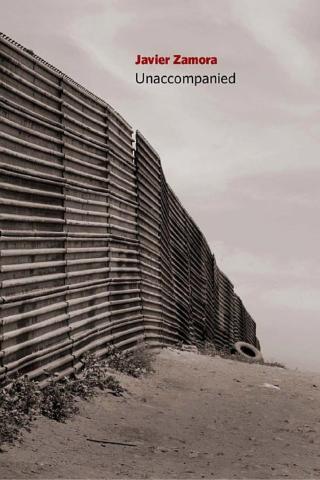By Sarah Kortemeier, Mary Carol Combs, and the students of TLS 641
Students will reflect and write creatively on themes of language and migration, using Javier Zamora's poem "Let Me Try Again" as a model.
Zamora, Javier. Unaccompanied. Copper Canyon Press, 2017.
Welcome to the Poetry Center online! We're a special collections library of contemporary poetry; this site, Voca, is our main digital archive, containing recordings of poetry readings from 1963 to the present. Our writing and reflection today will focus on a recording of a poem by Javier Zamora, a Salvadoran poet who migrated to the United States at the age of nine. His debut collection of poetry, Unaccompanied, explores this experience.
By the end of this activity, you'll have written a draft of a poem titled “Arrival” that resonates with your course themes, with Zamora's poem "Let Me Try Again," and with your personal experience (you’ll get lots of help along the way!).
First, jot some quick notes in response to these questions:
- Close your eyes and say the word "arrival" to yourself. What image do you see in your mind's eye? Describe it. (The image you see may or may not make immediate sense to you.)
- What does “arrival” mean to you in terms of language and migration?
Save these notes for later.
Next, on a new sheet of paper, draw a map of a place that has been formative for you. This place could be large, e.g. a country, a city. It could also be small, e.g. a single room. Fill in as many details as you can remember. (Forgotten detail will often surface as you continue to draw.)
When you feel you've filled in as much detail as you can remember, take a moment to review what you have drawn. Jot some notes: did anything surprise you in the course of this activity? What memories feel most urgent or clear as you look at the map?
Read Javier Zamora's "Let Me Try Again." Jot some notes in response to these questions:
- Are there any similarities between the kinds of details you remembered as you drew your map and the details Zamora describes in this poem?
- How does concrete, sensory detail (information from all five senses) help us access memory and emotion in Zamora's poem?
Listen to Zamora's 2019 performance of this poem (above). Note responses to these questions:
- What does his reading add to your understanding of the poem?
- Where do we hear role reversals happening either in the poem or in his remarks about the poem?
- What effects do these role reversals have on you, as a listener and reader?
- How do role reversals enact migration?
Now we'll turn toward creative writing. First, some prompts:
- List 10 jobs, or roles, you have held in your life
- List 10 scents you remember from childhood (be as specific as possible)
- List the first 4 words you learned in a foreign language
- List 5 nicknames people have called you (can be affectionate, malicious, or both)
- List 5 places you have been in your life where you weren’t sure you belonged
- Give a detailed description of something you had to do more than once before you succeeded
- Automatic writing: at the top of a new sheet of paper, write the words “Let me try.” Start a timer. Write for 5 minutes without stopping and without censoring yourself, no matter how strange or nonsensical your thoughts may seem as they flow from one another (the point is to reveal unconscious associations)
Finally, make yourself comfortable, give yourself around 45 minutes, and write a poem. You may use, discard, or add to any of the language you have generated in the reflective questions, the mapping activity, and the list prompts above. The title of your poem will be "Arrival," and you should try to compose it in couplets, as Zamora does in "Let Me Try Again." Otherwise, there are no constraints. Your poem can be a long, short, rhymed, or unrhymed as you wish.
Send your completed poem to your instructor. Thank you for your creativity and for visiting us on Voca!



